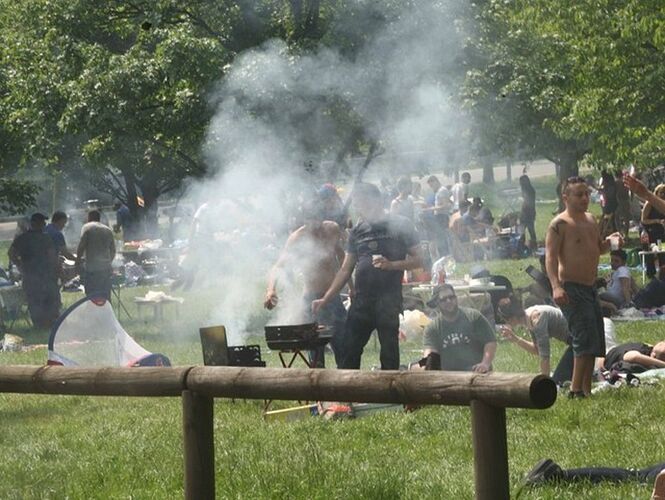How can we help newcomers to use public spaces to their full extent, because they do not know what activities are legal in these spaces and are afraid to act against the law?
This is the design challenge we want to solve during the on-going term or lets just say face at the moment. It came up to us through some interviews we and friends conducted in the last weeks with refugees or other newcomers in Berlin. What are your thoughts on this?
To make it easier for everyone interested to follow I will try to sum up the thoughts we had and the experiences we made recently.
Starting with the question “How can food help people on the move to feel at home wherever they are at the moment?” amongst others we got to talk to a 24 year old guy from Syria and a girl from Korea about the same age. One had to flee home and the other moved for love.
Some of the most remarkable insights we got are about food some are not. Two I want to share because they add to our design question.
The guy misses the Syrian nights where as he tells everyone takes their coaches and pillows outside, drinks tea, smokes, chats and just sleeps on the streets. Maybe this does not happen in big towns he says but in villages as in smaller or medium-sized towns it does.
The girl told us that she is missing the Korean street food a lot. Once she tried out a Korean street food market here in Berlin, but did not like it. She went there with some friends, to chat, meet new people and have some good Korean food but it ended up being too expensive, there was even an entrance fee and the food was just not good. In Korea she always used to eat outside with her friends. Cooking was a family thing; eating out was for all other social events.
After those interviews we talked about the “Berlin Thaipark”, were mostly Thai women sell homemade southeast Asian dishes on their blankets more or less being tolerated by the bureaucracy; about a great project by the New York based designer Candy Chang called Street vendor guide where she visualizes the most commonly violated rules in this context for the vendors themselves; and asked ourselves: How can we enable migrants to integrate the interactive food customs / traditions they like and bring from their culture of origin into Berlins community life?
Later on one of our fellow students told us the following:
A group of Syrian refugees mentioned the huge summer barbecues they would always have in summertime back in Syria: a lot of friends, family, a lot of food, somewhere in the nature, in a park. When being asked if they are doing similar activities here in summertime they deny. They think that it is forbidden to have a barbecue anywhere outside and do not want to act against the law seen their uncertain status. Still they miss them.
That basically is how we ended up facing the design question already mentioned above: How can we help newcomers to use public spaces to their full extent, because they do not know what activities are legal in these spaces and are afraid to act against the law?
So far we, a group of 4 university students, call our little project A Taste of Home and would be more than happy about any comments.
